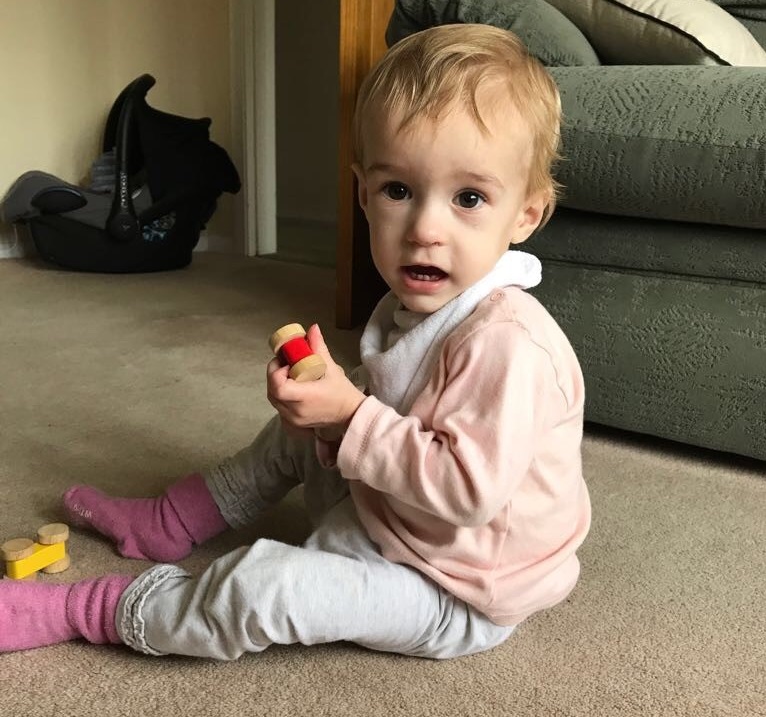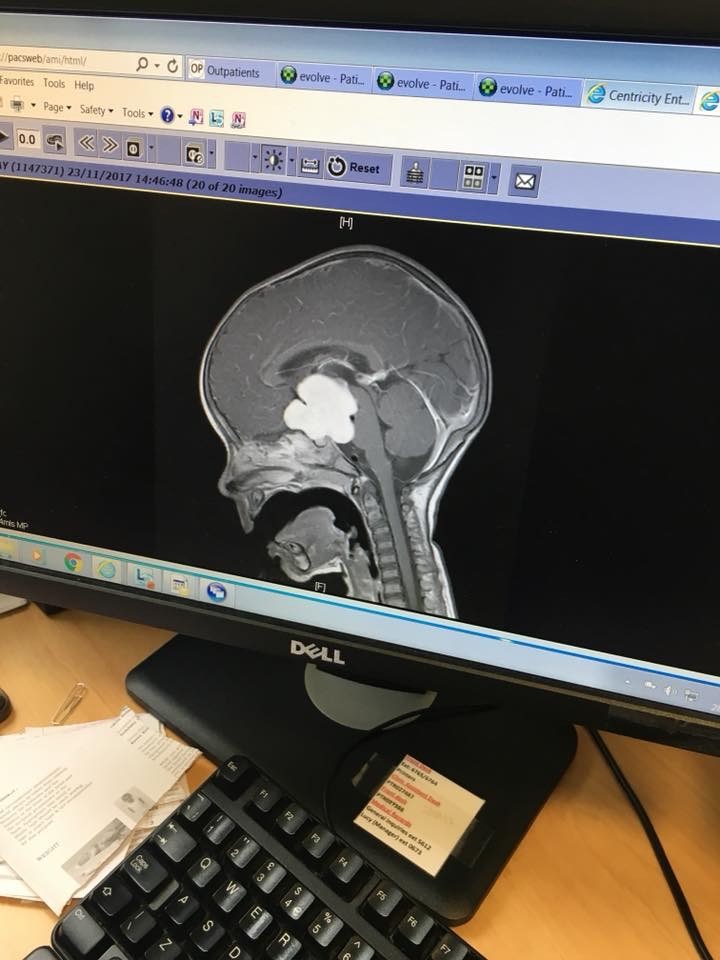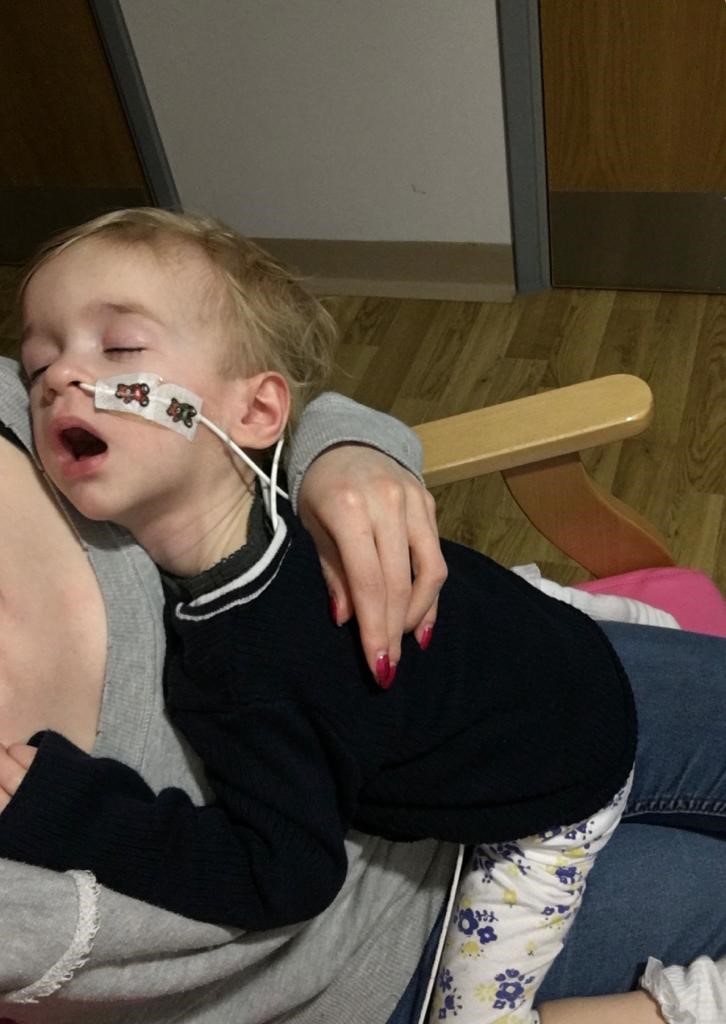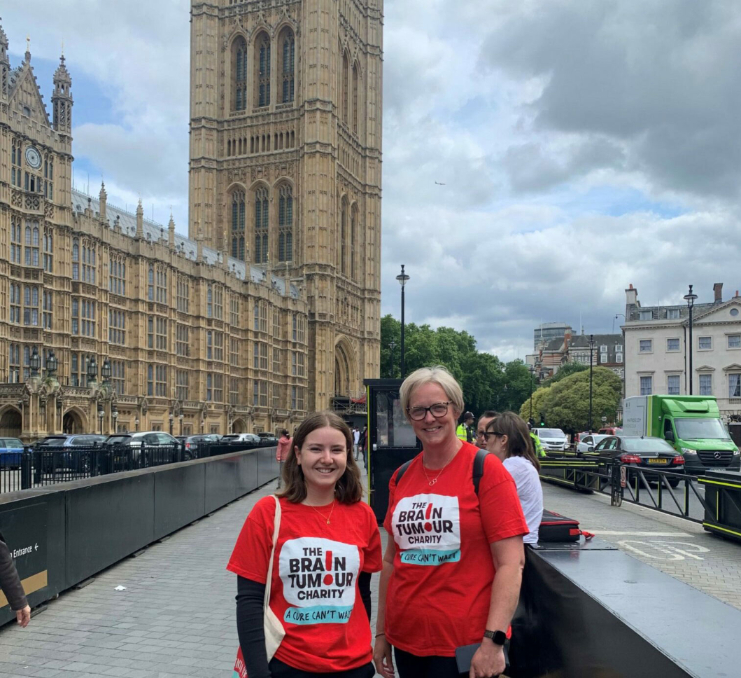Lily is 6 and has an optic pathway glioma. Hayley explained that specialists think she had it from birth, but it took over a year for her to be diagnosed, proving the need for faster brain tumour diagnosis.
This is Lily’ story
When Lily was born everything seemed fine. She was a big baby and seemed to be doing well. But, after a few weeks, we noticed that something wasn’t quite right. She wasn’t settling and wasn’t feeding very well.
My daughter-in-law took her to the doctors’ time and time again – eventually being referred to a dietician for lactose intolerance. But nothing worked. She was eating less and less and losing more and more weight. A baby that started life in the top 90% was now bottom of the scale.
This went on for months. The whole family was so worried. We could see there was something wrong. The doctors dismissed her, saying she was just a fussy eater – “Give her cornflakes,” one doctor said.
I even took her to the doctors’ myself a few times, but the doctors kept saying that because Lily was so happy and active, there couldn’t be anything seriously wrong with her.
Unfortunately, that was not true.
A brain tumour was discovered

Finally, when she was 11 months old, my son and daughter-in-law took her to a private paediatric consultant. She was immediately concerned, asking what the doctors were doing about Lily, what they’d said and started running tests over the coming days. Unfortunately, Lily got worse. She collapsed and ended up in A&E where she was given an NG tube and admitted to the ward. More tests were run, but nothing was identified.
She’d been there a couple of weeks when finally her other grandma noticed that her eye was flickering, so they did an MRI on her brain.
My son phoned me at 5pm, just a few hours later. He told me that it was a brain tumour – an optic pathway glioma – and she had visual impairment too.
“But she’s going to be ok Mum”, he said. “They’ve sent the scan details to Great Ormond Street Hospital and they’re going to treat her. She’ll need chemo for about a year and then she’ll be fine.”
I was devastated as you can imagine. My world fell apart but I also felt a great sense of relief that Great Ormond Street Hospital were involved. After all this time, our concerns were being taken seriously and were being listened to.


The need for faster brain tumour diagnosis
Hayley concluded by saying:
If only our local doctors had been more aware of the signs and symptoms of brain tumours.
If only we’d all been more aware of the signs and symptoms of a brain tumour
If the healthcare professionals had not been distracted by her smiles and how active she was (both of which turned out to be a side effect of her tumour).
Then my family wouldn’t have had all those months of worry – which, when I think back still fills me with fear today.
And maybe the tumour wouldn’t have got so big and caused so many problems to her eyes, leading her to be registered blind – severely sight impaired.

Want to help us drive down diagnosis times for brain tumours?
We’re calling on policy makers in Government and the NHS to help us make sure people experiencing symptoms of a brain tumour receive a diagnosis faster.
Join our group of passionate campaigners if you want to be part of our movement and help us create meaningful, lasting change!
